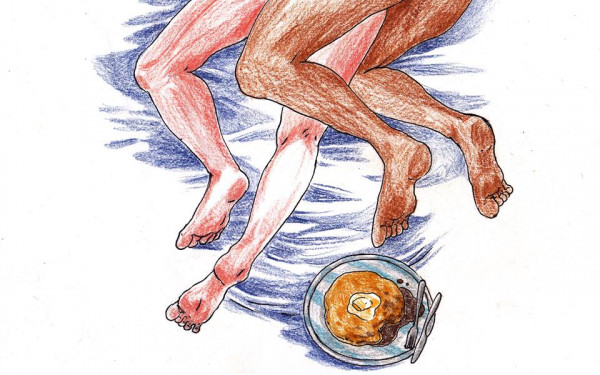A Visit From The Yeaster Bunny
I always thought yeast infections and chlamydia were the same thing, but I recently had my first yeast infection and my friend said it was probably from wearing a pad for too long. I’m wondering what the difference is, since they’ve always seemed similar to me. How I can avoid future yeast infections?
-Confused about Candida
The main difference is that chlamydia is a sexually transmitted bacterial infection, while a yeast infection is a fungal infection caused by an overgrowth of the yeast Candida, which is naturally found in your body but can become a problem when too much is produced.
Chlamydia is often called the “silent infection” because most people that have it show no symptoms. When symptoms do present themselves, they can include changes to the texture, smell and colour of vaginal discharge, pain or burning sensations when urinating, pain and/or bleeding during vaginal sex, and bleeding or spotting between periods. Due to its lack of symptoms in most people, regular STI testing is recommended; chlamydia is curable, but can lead to more serious conditions like pelvic inflammatory disease and infertility if left untreated.
Symptoms of a yeast infection can include itchiness in and around the vagina, pain during sex and urination, thick, white and usually odourless discharge, and soreness. If you are experiencing these symptoms for the first time, it is important to confirm that it is
actually a yeast infection; other bacterial infections have the same or similar symptoms, so it’s better to get a doctor’s opinion before assuming it’s just a yeast infection.
Yeast infections can be cured with over-the-counter creams or tablets that are inserted into the vagina, like Canesten or Monistat, or with a pill containing fluconazole, which can be purchased from a pharmacist without a prescription. Until the infection is cured, there are also creams to help relieve the itching.
As for the cause of the yeast infection, your friend could be right about it having been from wearing a menstrual pad. Yeast infections are more likely when there is excessive moisture, and menstrual pads are known for not being very breathable. If you suspect this is the cause, you should consider changing your pad more often or switching to tampons or menstrual cups, neither of which cause as much moisture. Some people are also prone to yeast infections at different points in their cycle, so if you get another one you might want to take note of the pattern.
It’s very rare for yeast infections to be transmitted sexually, since Candida yeast is naturally found in your body. While yeast infections aren’t considered sexually transmitted, there are some factors related to sex that could cause them. Flavoured condoms and lubricants often contain sugars that yeast can feed on, such as glucose, glycerin or sorbitol. Condoms with these ingredients should only be used for oral sex.
Over-the-counter douches, or “feminine hygiene cleansing products,” do more harm than good by introducing chemicals into the body (and are not even necessary since the vagina has natural processes to clean itself). Introducing foreign chemicals found in products, scented soaps, or lotions into the body can often be a quick route to irritations and infection.
Certain fabrics and clothing choices, like underwear or tight pants made of nylon or spandex, trap moisture and aren’t very breathable, thus making a yeast infection more likely.
Underwear made from cotton is often the most breathable, so it might be a good idea to invest in a few pairs. If you are wearing nylon or spandex tights, try to limit the time you spend in them, and change out of these fabrics soon after activities like working out or swimming.
Lastly, yeast infections vary greatly from person to person. Some people can go their whole lives without ever getting one, while others seem to be more prone to them and get them fairly regularly. About five per cent of people will experience four or more yeast infections annually, so you should see a doctor if you have more than one or two yeast infections a year and can’t readily identify a cause.
Submit your question anonymously at sex-pancakes.com and check out “Sex & Pancakes” on Facebook.
Got a quick health question? Just need a resource? Text SextEd at 514-700-0445 for a confidential answer within 24 hours!


_600_832_s.png)




